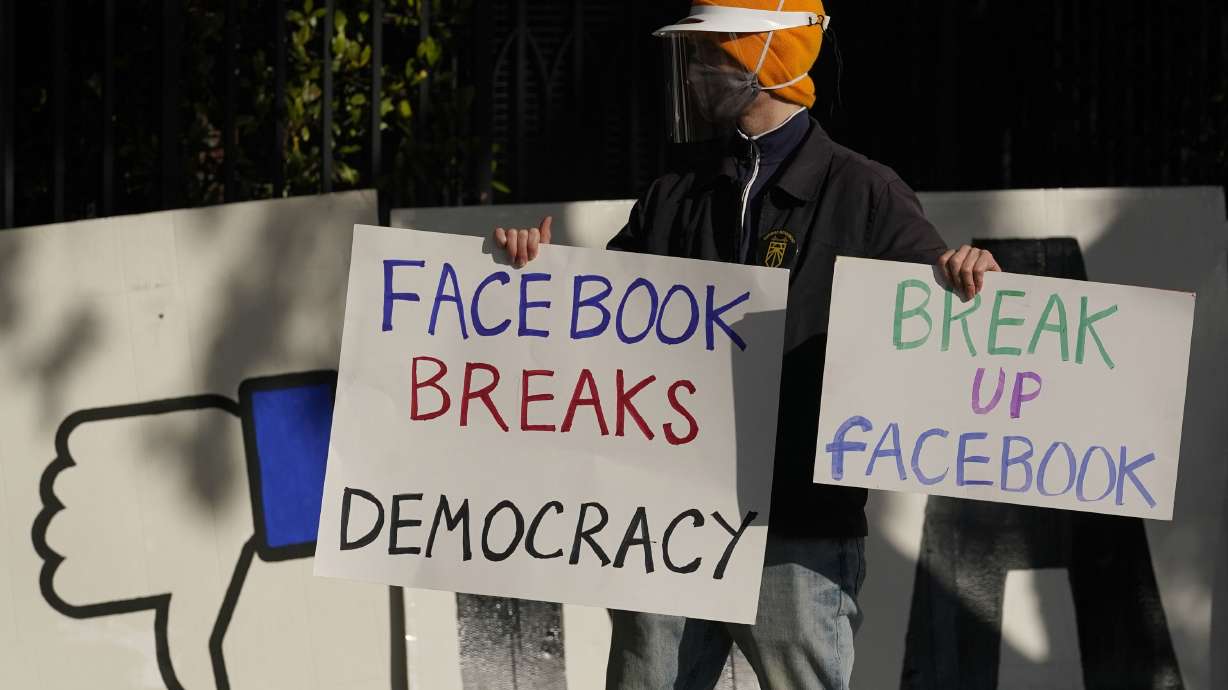Estimated read time: 3-4 minutes
This archived news story is available only for your personal, non-commercial use. Information in the story may be outdated or superseded by additional information. Reading or replaying the story in its archived form does not constitute a republication of the story.
WASHINGTON — The Supreme Court issued an order on Tuesday temporarily blocking a Texas law that prohibits Big Tech platforms like Facebook, Twitter and YouTube from removing content based on the viewpoints they express.
The 5-4 ruling reverses an earlier appeals court order that lifted an injunction on the Texas law that would ban U.S. social media platforms with more than 50 million monthly users from removing a user over a "viewpoint" and also require platform operators to publicly report information about content removal decisions and account suspensions.
The Supreme Court ruling follows a May 23 decision from the 11th Circuit Court of Appeals that confirmed a lower court's order to allow an injunction on a Florida law that is aiming to institute social media restrictions similar to the Texas edict.
Unexpected Supreme split? The justices divided 5-4 in an ideologically scrambled vote, according to SCOTUSblog. Three of the court's conservatives, Chief Justice John Roberts and Justices Brett Kavanaugh and Amy Coney Barrett joined two liberals, Justices Stephen Breyer and Sonia Sotomayor, in putting the law on hold while lower courts continue to assess technology companies' constitutional challenge to the law. The other three conservatives, Justices Clarence Thomas, Samuel Alito and Neil Gorsuch, and one liberal justice, Elena Kagan, dissented.
The majority did not explain the reasoning behind its brief order, per SCOTUSblog. Alito wrote a six-page dissent arguing that the court's intervention to block the law is premature. Thomas and Gorsuch joined that dissent. Kagan did not join Alito's opinion, but she separately indicated that she, too, would have allowed the law to take effect. She did not elaborate on her thinking.
The case now returns to district court where it will be argued on merits.
Whose free speech? Following the Tuesday ruling, Matt Schruers, president of the Computer & Communications Industry Association, one of the two groups that sued to block the Texas law on arguments that it violates companies' First Amendment rights, lauded the court's decision.
"We are encouraged that this attack on First Amendment rights has been halted until a court can fully evaluate the repercussions of Texas's ill-conceived statute," Shruers said in a statement. "This ruling means that private American companies will have an opportunity to be heard in court before they are forced to disseminate vile, abusive or extremist content under this Texas law. We appreciate the Supreme Court ensuring First Amendment protections, including the right not to be compelled to speak, will be upheld during the legal challenge to Texas's social media law.
According to The Texas Tribune, Texas Attorney General Ken Paxton has defended the law, saying it doesn't violate the First Amendment because social media platforms are "gatekeepers of a digital modern public square." He has also argued that social media platforms "are the 21st-century descendants of telegraph and telephone companies." And he has claimed that the government should be allowed to regulate the companies as "common carriers," which are private or public companies that transport goods or people and are barred by government regulators from discriminating against customers.
What's next? Conservative states have launched a legal war on social media companies in an effort to stem what they see as a wave of censorship, according to Axios. But this decision, like other recent rulings, suggests they face an uphill climb in court.
However, now that two federal appellate courts have come to opposite conclusions on the legality of social media moderation laws like those proposed by Florida and Texas, the issues appear destined to, at some point, end up back in front of Supreme Court justices.










